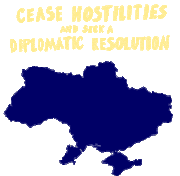|
MiddleOne posted:Same question. I've seen the protests slowly start popping up into my feed but media coverage is like zilch. Ham posted:Egypt update: People in multiple cities went out to protest Sisi's regime today, including at Tahrir square in Cairo Protests were dispersed yesterday with no reported casualties. No reports of protests that I've heard of today, but even if they don't happen, a psychological barrier against protesting seems to finally be breaking.
|
|
|
|

|
| # ? May 24, 2024 16:11 |
|
loving brave people, stay strong and stay safe
|
|
|
|
quote:O'Brien put his hawkish views on full display in While America Slept. The book is largely dedicated to criticising Obama policies that he claimed emboldened "autocrats, tyrants and terrorists". Not looking good for those al qaeda protestors
|
|
|
|
MiddleOne posted:Same question. I've seen the protests slowly start popping up into my feed but media coverage is like zilch. Your average America doesn’t even know what’s happening in Yemen. US media is awful.
|
|
|
|
Less Claypool posted:Your average America doesn’t even know what’s happening
|
|
|
|
Do we have enough Americas for a statistically significant sample?
|
|
|
|
we need to get rid of all americans i think
|
|
|
|
Numerical Anxiety posted:(This is not ignoring, say, the Ottoman genocides, but at least they managed to kind of hide those from international scrutiny during the conflict) why is covering up the genocide a point in their favour?
|
|
|
|
This protest spun off after football. So while there is a political reason for it. The police can spin it as hooliganism and denigrate the message So it was dispersed and no one was gunned down by PKMs.
|
|
|
|
Less Claypool posted:Your average America doesn’t even care about what’s happening in Yemen. Ftfy
|
|
|
|
gh0stpinballa posted:why is covering up the genocide a point in their favour? The question was "why were the Germans viewed as uniquely malevolent during WWI?" - the fact that Turkish war crimes were not known until later helped create the impression that the Germans were the standout worst actors during the war.
|
|
|
|
The last time there were major protests in Egypt, the regime just machine-gunned them and the West whistled and looked the other way. I hope it doesn't turn out like that now! It will.
|
|
|
|
Egypt is a great example of the basic continuities in American foreign policy across administrations and despite the two Presidents have extremely different personalities and goals. Obama actually did make some tepid attempts to resist the will of the blob but his own senior appointees were directly undermining him and already pushing for the policy that we currently associate with Trump. The New York Times posted:The White House and the Strongman
|
|
|
|
The Cold War never ended in the Middle East policy wise.
|
|
|
|
Numerical Anxiety posted:(This is not ignoring, say, the Ottoman genocides, but at least they managed to kind of hide those from international scrutiny during the conflict) That makes them worse, not better
|
|
|
|
Libluini posted:That makes them worse, not better As already stated the point was that it didn't receive so much attention during the war, which left more attention on German war crimes. I'm not quite sure if that's exactly what happened though, the Armenian genocide was being reported on by various people as it was happening. I think part of it might just be that more focus was pointed at Germany as clearly the most dangerous and powerful of the Central Powers and also ostensibly a "civilized nation", so it was more shocking, while everyone essentially expected the Turks to be terrible ("the Terrible Turk" was essentially a kind of mantra). I woudl say that maybe people in the West didn't really care that much for Armenians, but I doubt if that's that true, because you had plenty of other occasions where Turkish mistreatment of Christian minorities had made headlines in the preceding decdes. There's also other atrocities in WWI which often don't seem to have made much more than local impact, such as Russian pogroms against Jews, both in the early war when they invaded Galicia and routinely rounded up, deported, plundered, humiliated and randomly killed Jews and then later during the great retreat when they essentially forced most of the Jewish population in the Pale of Settlement to relocate (believing they could become a fifth column for Germany) which resulted in unknown numbers of deaths (probably in the hundreds of thousands). And then there's the Austro-Hungarians (and later Bulgarians) who were absolutely brutal in their reprisals against Serbian civilians when they invaded (Serbia lost something like 25% of its total population during the war). Randarkman fucked around with this message at 20:26 on Sep 21, 2019 |
|
|
|
WAR CRIME GIGOLO posted:Well thats even worse isnt it? Because that means more is coming. The Saudis have Patriot, but they are laughably incompetent. Even with Donnie the Dove at the helm nobody seems all that interested in getting into a new mess with Iran just because the Saudis are too poo poo at war to effectively murder a bunch of shepherds. Rent-A-Cop fucked around with this message at 20:53 on Sep 21, 2019 |
|
|
|
Another night of protests in Egypt, specifically in the city of Suez - currently being dispersed with pellets and tear gas. Live feed: https://www.facebook.com/mohamed.saied.18/videos/1662633620534549/ Suez was one of the first cities to follow Cairo and go all in on protests back in 2011.
|
|
|
|
In his latest video, Mohammed Ali is calling for a million man/woman protest on Friday. Lets see how this plays out
|
|
|
|
I don't think this is really news to anyone who reads this thread, but it's nice to see the Washington Post editorial board saying it since they've often been pretty hawkish in the past. https://twitter.com/lrozen/status/1175501361716301826
|
|
|
|
kind of weird to see people in this thread who un-ironically believe American policy is some kind of force for good in the world
|
|
|
|
Throatwarbler posted:kind of weird to see people in this thread who un-ironically believe American policy is some kind of force for good in the world Does anyone educated believe this about anyone’s foreign policy? Foreign policy of all states is the same: maximize national interest. Whether it’s a zero sum calculation or not is the only real distinction.
|
|
|
|
Phil Moscowitz posted:Does anyone educated believe this about anyone’s foreign policy? Foreign policy of all states is the same: maximize national interest. Whether it’s a zero sum calculation or not is the only real distinction. There are unfortunately. Even Christopher Hitchens was patriotically openly for the Iraq war.
|
|
|
|
Phil Moscowitz posted:Does anyone educated believe this about anyone’s foreign policy? Foreign policy of all states is the same: maximize national interest. Whether it’s a zero sum calculation or not is the only real distinction. Nah, different government's behave differently, you can't just reduce all government behaviour to the maximization of a fictitious concept like "national interest", especially since the "national interest" is at best a euphemism for what powerful domestic interests want, not some calculated sense of what is really going to benefit the average citizen.
|
|
|
|
Helsing posted:Nah, different government's behave differently, you can't just reduce all government behaviour to the maximization of a fictitious concept like "national interest", especially since the "national interest" is at best a euphemism for what powerful domestic interests want, not some calculated sense of what is really going to benefit the average citizen. Sure, but none of them operate “to be a force for good in the world.” Anyone who believes that doesn’t pay attention to the world. Lol at thinking “national interest” is a fictitious concept. Or that it has to be about benefiting the average citizen.
|
|
|
|
Phil Moscowitz posted:Sure, but none of them operate “to be a force for good in the world.” Anyone who believes that doesn’t pay attention to the world. "All states... maximize [their] national interest" is how Realists (the school of foreign policy thought, not to be mistaken for actual realists) attempt to justify their application of neoclassical economic methodology to the study of interstate relationships. So they propose a bunch of law like axioms - that the international system is anarchic, that state's pursue their rational self interest, that states are unitary, and that all states are principally concerned with their own survival, and based on then based on these axioms various assumptions about state behavior can be deduced (much in the way that a neoclassical economist can use a model of labour market supply and demand to deduce from first principles that increasing the minimum wage will reduce employment). It's a bad way to interpret international state behaviour that relies on an unrealistic level of abstraction to appear plausible. States are not "unitary" and their national interests can't be usefully reduced to a simplistic imperative for "survival". The entire approach is based around erasing the crucial conflicts that occur within state's between different interest groups. A theory of international relations that is more or less premised on the idea that a state and that privileges the state as the uniquely important actor in international affairs is fundamentally flawed.
|
|
|
|
The basic realist model is too simple because it’s the underlying framework for more complex analysis. It’s absolutely not a bad way to interpret international relations and it has been the driving force behind US foreign policy up until we elected an unqualified criminal. US foreign policy has always been about advancing what are viewed by policymakers as US interests through the application of power—whether those are defined by private, corporate, security, or whatever (sometimes erroneous) interests those policymakers are emphasizing with a particular course of action. More “liberal” actions by the US are taken when they suit realist objectives, and when they don’t, the inconvenient liberal positions are jettisoned. Cafeteria liberalism. But whatever, if you reject realism entirely we can just agree to disagree.
|
|
|
|
Phil Moscowitz posted:The basic realist model is too simple because it’s the underlying framework for more complex analysis. It’s absolutely not a bad way to interpret international relations and it has been the driving force behind US foreign policy up until we elected an unqualified criminal. US foreign policy has always been about advancing what are viewed by policymakers as US interests through the application of power—whether those are defined by private, corporate, security, or whatever (sometimes erroneous) interests those policymakers are emphasizing with a particular course of action. More “liberal” actions by the US are taken when they suit realist objectives, and when they don’t, the inconvenient liberal positions are jettisoned. Cafeteria liberalism. This seems to effectively say "If the state does something, it was done in national interests, therefore everything the state does is in the national interest by definition". None of this would be necessary if we simply drop the assumption that states are unitary or that the state is the uniquely important actor in all international affairs. Your commitment to the methodological assumptions and terminology of realism is forcing you into adopting a vague and contradictory definition of "national interests" when you'd be better off abandoning the utility maximization framework and finding a more realistic set of starting assumptions.
|
|
|
|
Helsing posted:This seems to effectively say "If the state does something, it was done in national interests, therefore everything the state does is in the national interest by definition". None of this would be necessary if we simply drop the assumption that states are unitary or that the state is the uniquely important actor in all international affairs. Your commitment to the methodological assumptions and terminology of realism is forcing you into adopting a vague and contradictory definition of "national interests" when you'd be better off abandoning the utility maximization framework and finding a more realistic set of starting assumptions. Like what? Also I didn’t say “states are unitary.” Just that they never act out of pure altruism. Phil Moscowitz fucked around with this message at 19:42 on Sep 22, 2019 |
|
|
|
I know it pretty much seems like states only operate in their own self interest but sometimes I think their might have been exceptions? Like the US involvement in Somalia in the early 90s? From what I understand, we were just trying to get those people fed. What selfish purpose was there for the US to get involved? I'm genuinely asking because I can't think of one but Im sure in the end there will be some cynical reason for it.
|
|
|
|
Phil Moscowitz posted:Like what? States are not unitary, their behavior is the expression of different and sometimes contradictory interests groups or individuals, social and economic factors (rather than just some imperative for the state to survive and/or maximize its relative power) are of major relevance, the state is not the only relevant actor for international affairs and it shouldn't be assumed that all states behave in the same way or that their internal constitution has no influence over their external behavior.
|
|
|
|
the invasion of iraq was, emphatically, not in the US collective national interest. it was however in the interest of certain powerful groups influential with the american government
|
|
|
|
V. Illych L. posted:the invasion of iraq was, emphatically, not in the US collective national interest. it was however in the interest of certain powerful groups influential with the american government “Collective interest” is not what matters. What matters is what policymakers believe the national interest to be (which has never been collective—often with horrible consequences for large sections of the population). The Iraq invasion was stupid neoconservative “force of good in the world through application of military power to mold international affairs for US interests.” Re: Somalia, the US operated within the mandate of a UN peacemaking operation, which then converted to a manhunt for Aidid once US personnel were killed. “Realism” is not the end all be all of foreign policy and doesn’t require states to forego international cooperation, collective security, and other “liberal” policies. Stability and expanded spheres of influence benefit the interests of global powers and in 1993 the US was still exploring hegemony, what it meant, and how to exploit it. The fact that the US withdrew support for the UN operation after the battle of Mogadishu demonstrates that the objective of disarming warlords and feeding people was evaluated and rejected once policymakers determined UNOSOM was no longer aligned with US interests.
|
|
|
|
Helsing posted:States are not unitary, their behavior is the expression of different and sometimes contradictory interests groups or individuals, social and economic factors (rather than just some imperative for the state to survive and/or maximize its relative power) are of major relevance, the state is not the only relevant actor for international affairs and it shouldn't be assumed that all states behave in the same way or that their internal constitution has no influence over their external behavior. True, there are dozens of countries—the majority of the world by far—with no real ability to influence international affairs, economically, politically, or militarily. And those countries are usually much more interested in liberalism and lacking in cohesive foreign policy. Seriously, realism and its offshoots aren’t a “one size fits all” framework. Nobody says they are.
|
|
|
|
Phil Moscowitz posted:“Collective interest” is not what matters. What matters is what policymakers believe the national interest to be (which has never been collective—often with horrible consequences for large sections of the population). The Iraq invasion was stupid neoconservative “force of good in the world through application of military power to mold international affairs for US interests.” I still am not clear on what your actual definition of "US interests" actually is. You seem to be describing a style of rhetoric used by policy makers rather than a distinctive goal. In your mind is it ever even possible for the state to not act in its own interests? Phil Moscowitz posted:True, there are dozens of countries—the majority of the world by far—with no real ability to influence international affairs, economically, politically, or militarily. And those countries are usually much more interested in liberalism and lacking in cohesive foreign policy. Perhaps I didn't make myself clearer when I mentioned economic issues. Let me try to state this more directly. Realism introduces a simplifying assumption that says the state is the only real actor in international affairs (so large corporations, criminal mafias, elite power networks, non-state actors, are generally held to be of second order significance or their actions are always somehow reducible to the policy of this or that state). In order to make state behavior predictable a set of axioms are proposed: the state is assumed to be unitary (this is necessary for the state to have a national interest), the state is presumed to be motivated by its own survival, the state is presumed to do this in a basically rational manner (i.e. all states behave in basically the same way, as you yourself asserted). Taken together these assumptions make it possible to construct a relatively straightforward model of state behavior very reminiscent of models found in neoclassical micro-economics in which the behavior of the agents can be deduced from the underlying rules of the system. My criticism here is that 'the state' is not the obvious default unit of analysis for international relations. States are not always as homogeneous in either their internal structures or their behavior as this theory requires them to be. Internal divisions such as personal power struggles, disputes between rival political parties, class conflicts, ethnic tensions, religious clashes or subregional rivalries are vitally important for understanding how government's behave in the international arena. You can't just dismiss these as secondary factors - in some cases they actually outrank any abstract commitment to state "survival". The state is not a living entity it is the summation of many different individuals and groups. When you make highly abstract and sweeping statements like claiming that all states are merely motivated to "maximize national interest" you're obscuring a lot more than you're illuminating.
|
|
|
|
Just write your manifesto instead of trying to get us to argue it out of you. Literally no one in this thread is arguing that american foreign policy is some national interest serving poo poo or a force for good or for textbook realism or anything remotely similar.
|
|
|
|
I’m not writing a term paper for the IR degree I got 20 years ago. I’m shitposting in response to someone pointing out that people think American policy is a “force for good in the world” which is ludicrous whether you think Morgenthau is stupid or not
|
|
|
|
Phil Moscowitz posted:I’m not writing a term paper for the IR degree I got 20 years ago. I’m shitposting in response to someone pointing out that people think American policy is a “force for good in the world” which is ludicrous whether you think Morgenthau is stupid or not That wasn't directed at you Herstory Begins Now fucked around with this message at 23:50 on Sep 22, 2019 |
|
|
|
Herstory Begins Now posted:That wasn't directed at you Btw, one factor in our intervention into Somalia, was that the previous Barre government was one of our proxies (versus Soviet aligned Ethiopia) and we still had some invested interest there even after the Soviets had fallen. Obviously our interests started to wane as Cold War momentum faded.
|
|
|
|

|
| # ? May 24, 2024 16:11 |
|
Sometime ago I read through a several of the army's and State department's post-intervention internal summaries of the Somalia intervention and as I recall they gave two justifications for the occupation in 1991. The first, and I think it was sincere, was the Somali need for famine relief and the requirement of security to distribute the food aid. I think the humanitarian motive was real the course of the intervention does not make sense without it. The second justification is more like a typical national or strategic level motive. It was that the collapse of the Somali government into anarchy was seen as a threat to the international order of sovereign states. This fear also explains why the world has refused to acknowledge the government of Somaliland even though there has been no authority capable of opposing it's secession in Mogadishu since 1990. Maintaining the fiction of a Somali central state is seen as necessary to support the basis of the world political system.
|
|
|




























